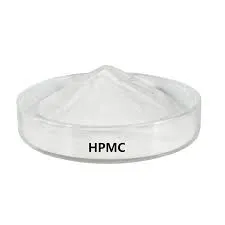
aug . 10, 2024 07:00 Back to list
Enhancing Adhesion in Mortar Applications with Innovative Bonding Additive Solutions for Optimal Performance
Understanding Mortar Bonding Additives Enhancing Performance and Durability
Mortar bonding additives have emerged as essential components in modern construction, particularly in masonry and tiling applications. These additives are designed to enhance the adhesion, flexibility, and overall performance of mortar mixtures, ultimately resulting in structures that are more durable and resilient. As we explore the significance of mortar bonding additives, it is important to understand their composition, benefits, and applications in the construction industry.
Composition of Mortar Bonding Additives
Mortar bonding additives are typically formulated from a blend of polymers, resins, and other chemical agents that improve the bond strength between the mortar and the substrates. These additives can be classified into two primary categories polymer-based and chemical additives. Polymer-based additives, often in the form of emulsions or powders, enhance the flexibility and workability of the mortar, allowing it to better accommodate slight movements in the building materials. Chemical additives, on the other hand, may include fortifying agents that improve water retention and enhance adhesion properties.
Benefits of Using Mortar Bonding Additives
1. Improved Adhesion One of the primary benefits of incorporating bonding additives into mortar is the significant increase in adhesion strength. This is crucial in preventing bond failures that can lead to costly repairs or structural failures over time.
2. Enhanced Flexibility Traditional mortars may be prone to cracking due to thermal expansion and contraction. Mortar bonding additives provide greater flexibility, allowing the mortar to withstand these movements without compromising the integrity of the bond.
3. Increased Durability Additives improve the overall durability of the mortar, making it more resistant to environmental factors such as moisture, freeze-thaw cycles, and chemical attack. This enhancement extends the lifespan of the structures built with these mortars.
mortar bonding additive

4. Improved Workability The incorporation of bonding additives can improve the workability of mortar mixtures, making them easier to apply and manipulate. This is particularly beneficial for complex projects that require intricate detailing.
5. Versatile Applications Mortar bonding additives are highly versatile and can be used in a variety of applications, including bricklaying, stucco, tile installation, and stone masonry. Their adaptability makes them suitable for both residential and commercial projects.
Applications in the Construction Industry
Mortar bonding additives find use in various applications across the construction sector. In tile installation, for instance, the additives help create a strong bond between the tiles and the substrate, reducing the likelihood of tile loosening or cracking over time. In brick and stone masonry, these additives enhance the strength of the joints, allowing buildings to endure harsh weather conditions.
Furthermore, bonding additives are often utilized in repair works to improve adhesion with old substrates, ensuring a strong bond when overlaying existing surfaces. This is especially valuable in renovation projects, where maintaining structural integrity is paramount.
Conclusion
In summary, mortar bonding additives play a vital role in enhancing the performance and longevity of mortar in construction applications. Their ability to improve adhesion, flexibility, and durability makes them indispensable for achieving high-quality results in masonry and tiling projects. As the construction industry continues to evolve, the use of advanced bonding additives will likely become more prevalent, contributing to safer and more resilient structures. By embracing these innovative materials, builders can meet the demanding requirements of modern construction while ensuring the enduring strength of their projects.
-
Unlocking the Benefits of HPMC Products: A Gateway to Versatile Applications
NewsAug.07,2025
-
Unleashing the Potential of HPMC Ashland: A Comprehensive Look
NewsAug.07,2025
-
Tile Bonding Cellulose: The Key to Superior Adhesion and Durability
NewsAug.07,2025
-
Hydroxypropyl Methylcellulose Powder: The Versatile Component in Modern Pharmaceuticals
NewsAug.07,2025
-
Hydroxyethyl Cellulose: The Versatile Solution for Various Industries
NewsAug.07,2025
-
Hydroxyethyl Cellulose (HEC): The Versatile Polymer for Various Applications
NewsAug.07,2025







